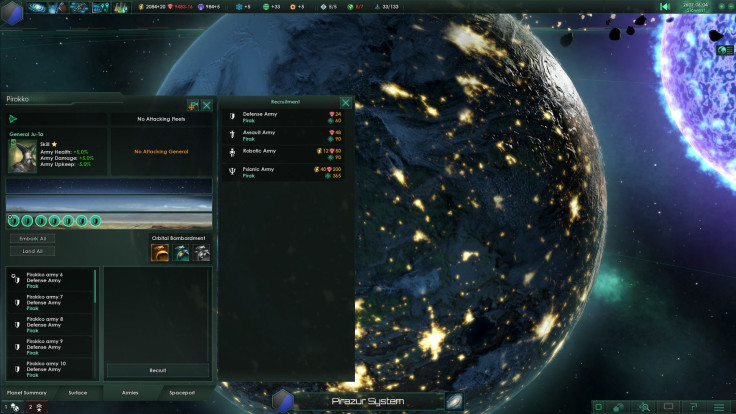Paradox Development Studio launched two major new games within a month of each other this spring: In May, Stellaris, its first grand-strategy game set in outer space, came out, followed in June by World War II-sim Hearts of Iron IV. That’s two huge strategy games, both of which are worthy of hundreds of hours of gameplay, coming out right on top of each other. It seems like a weird call—but the truth is, because of the unique nature of Paradox’s games, the choice makes a lot of sense… especially considering the company’s approach to DLC.
Stellaris and Hearts of Iron IV DLC Will Keep Both Games Alive

Here’s the thing with all of Paradox’s strategy games: They take a huge amount of time to play. A single game can easily take dozens of hours if you play it from beginning to end—that’s the amount of game-time you often get from other complete games, but Paradox games have a level of replayability only rivaled by the Civilization series and procedural games like Minecraft. That said, if you’re anything like this writer, by the time you get through a few five to ten hour plays and one grand campaign, you’ll have had your fill for a few months.
That’s the great thing about Paradox’s model for DLC. The company continues to support its games with feature-rich DLC for years. In fact, Paradox recently announced a medium-sized DLC pack for Crusader Kings 2, which came out in early 2012. Much of the content of these DLC packs comes by way of free patches, so you’re not obligated to shell out (and besides, they’re regular features of Steam sales and the like). But the great thing about that schedule is, by the time you’re ready for another 15 or 100 hour long Paradox campaign, there’s probably another DLC ready for it to make the game feel fresh and new again.
That’s why having Stellaris and Hearts of Iron IV come out on top of each other makes so much sense. Both are developed by different teams, so the DLC for both will be developed simultaneously. And the releases will essentially freshen up both games every few months. And, because there are two of them, there will be more fun stuff to discover every time you do check back in. Meanwhile, both Europa Universalis IV and Crusader Kings II are still getting DLC support.
Paradox games in general have a lifecycle lasting years—not just from the developer, but for the serious strategy gamer. These games have a lot going on—they’re long and demanding, and even when you binge hard and burn out on a game… a year later, you find yourself really jonesing for another go at those darn Nazis / sentient space mushrooms, and end up playing again. Whether you buy DLC or not, Paradox games stay fresh far longer than most games these days.

















